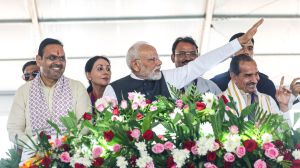Court as sanctuary
With exemplary punishment to the Maharashtra minister, the apex court empowers the citizen

The jail sentence awarded to Swarupsinh Naik, a minister in Maharashtra, by the Supreme Court is significant for two reasons. First, it reiterates the principle that no matter how high a person is, the law is always higher. The Court itself voiced in its ruling the hope that such exemplary punishment would put on notice those who believe they can disregard court orders by virtue of “their money, power, social status or posts held”. Naik, when he was the state’s minister of environment — and in league with Ashok Khot, then principal secretary, environment — cleared six saw mills near the Tansa sanctuary, knowing full well that this expressly contravenes Court orders.
Second, it is a reminder of the sentinel-like role the apex court has come to play in the country’s affairs. Time and again, issues stalled due to political opportunism, and needed its enlightened scrutiny for resolution. The stalled Bangalore-Mysore Infrastructure Corridor is a prime example. The Karntaka government should note well the fate that has just visited Minister Naik and move decisively on that benighted project.
Over the years, the Supreme Court has strengthened ordinary citizens by protecting their liberties and improving the quality of their lives. Those who berate it when judgments go against their interests do incalculable harm to an institution central to Indian democracy. Narmada Bachao Andolan activists recently thought it fit to demonstrate outside the Supreme Court’s portals because it had in its wisdom ruled that work on the Sardar Sarovar Project must continue. Such action cannot but be termed misguided and wrong — it’s a bit like removing the ground from under one’s feet. It is in everybody’s interest to protect the credibility of the highest court of the land, because it works to empower everyone.




- 01
- 02
- 03
- 04
- 05


























